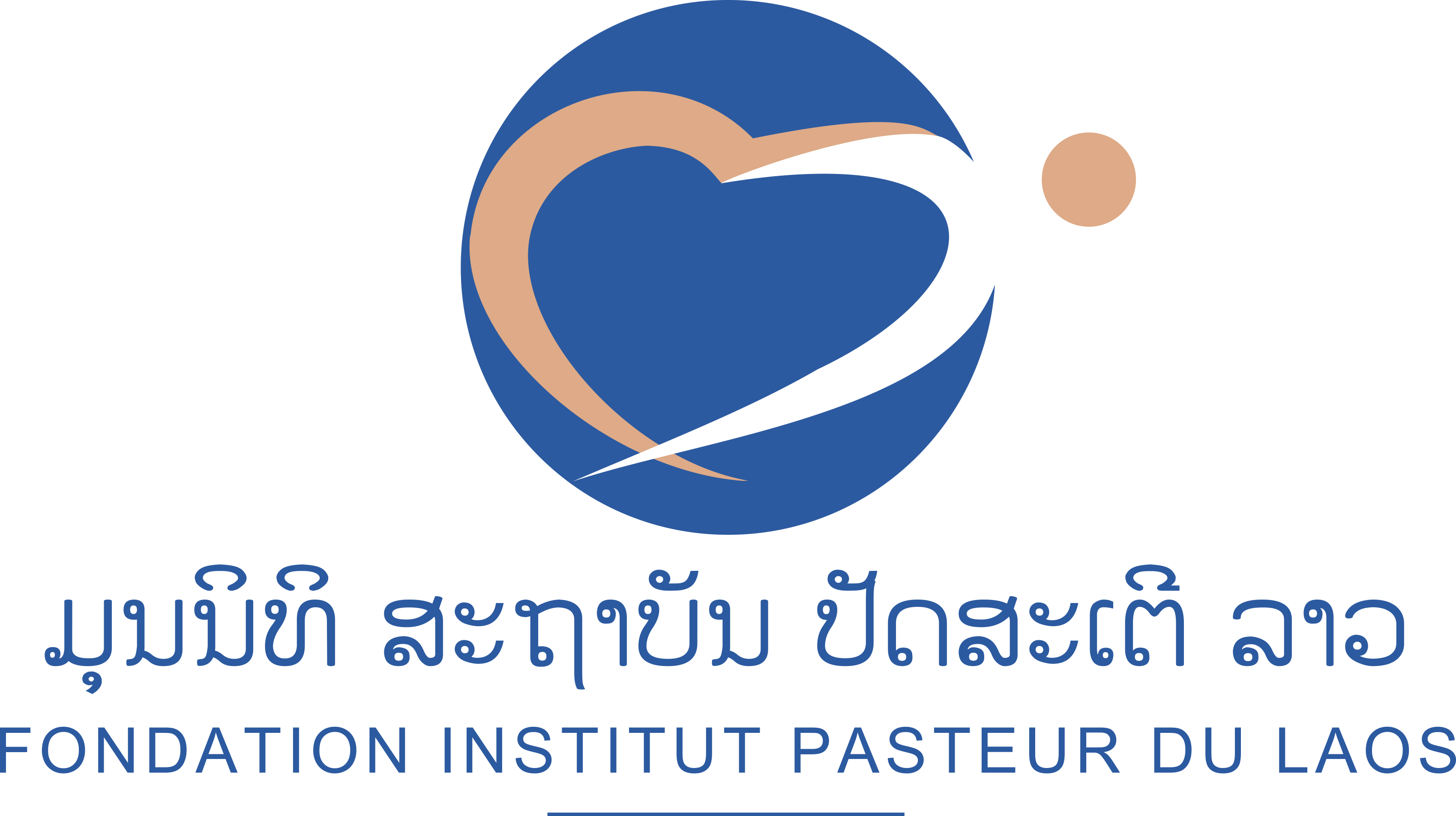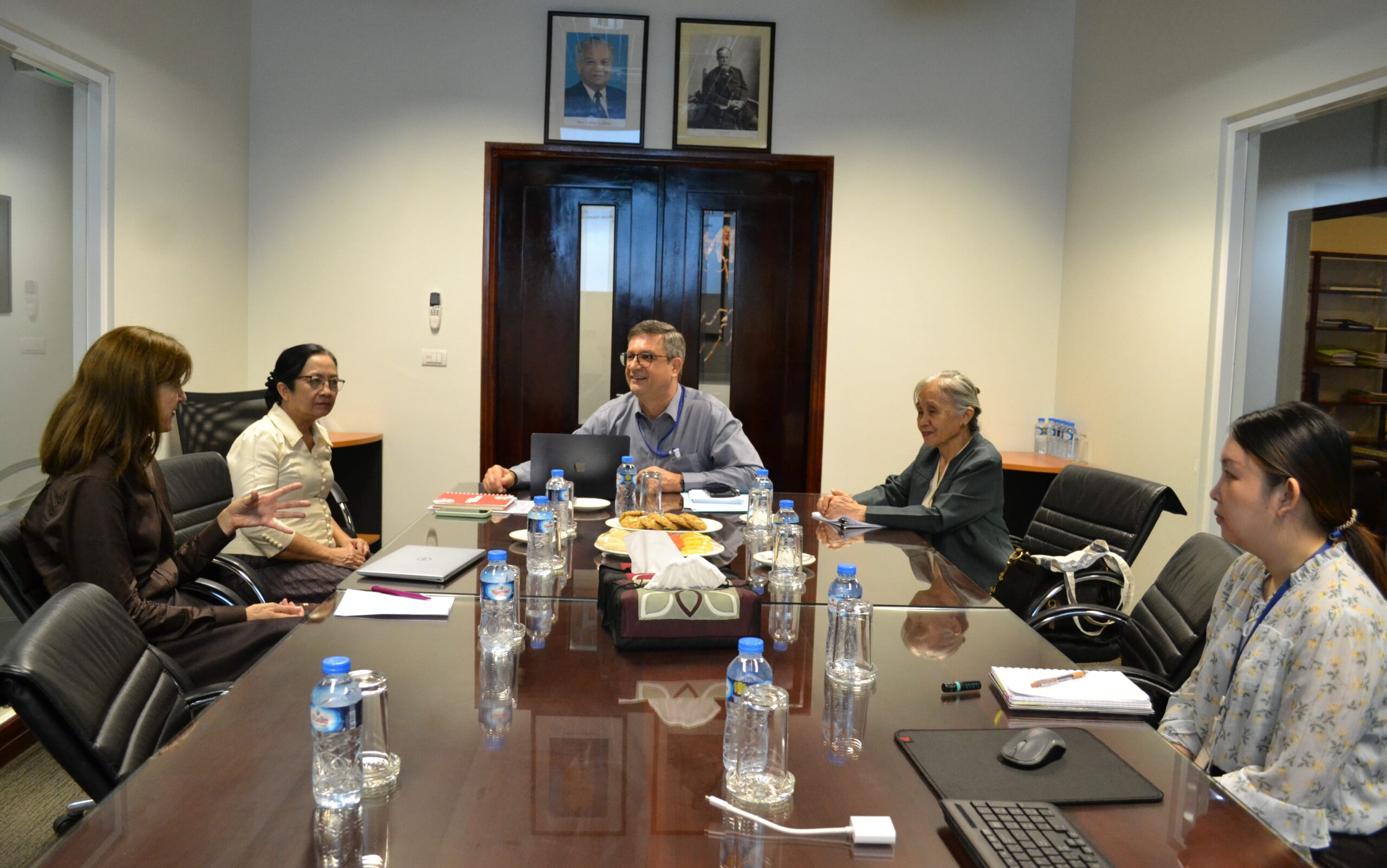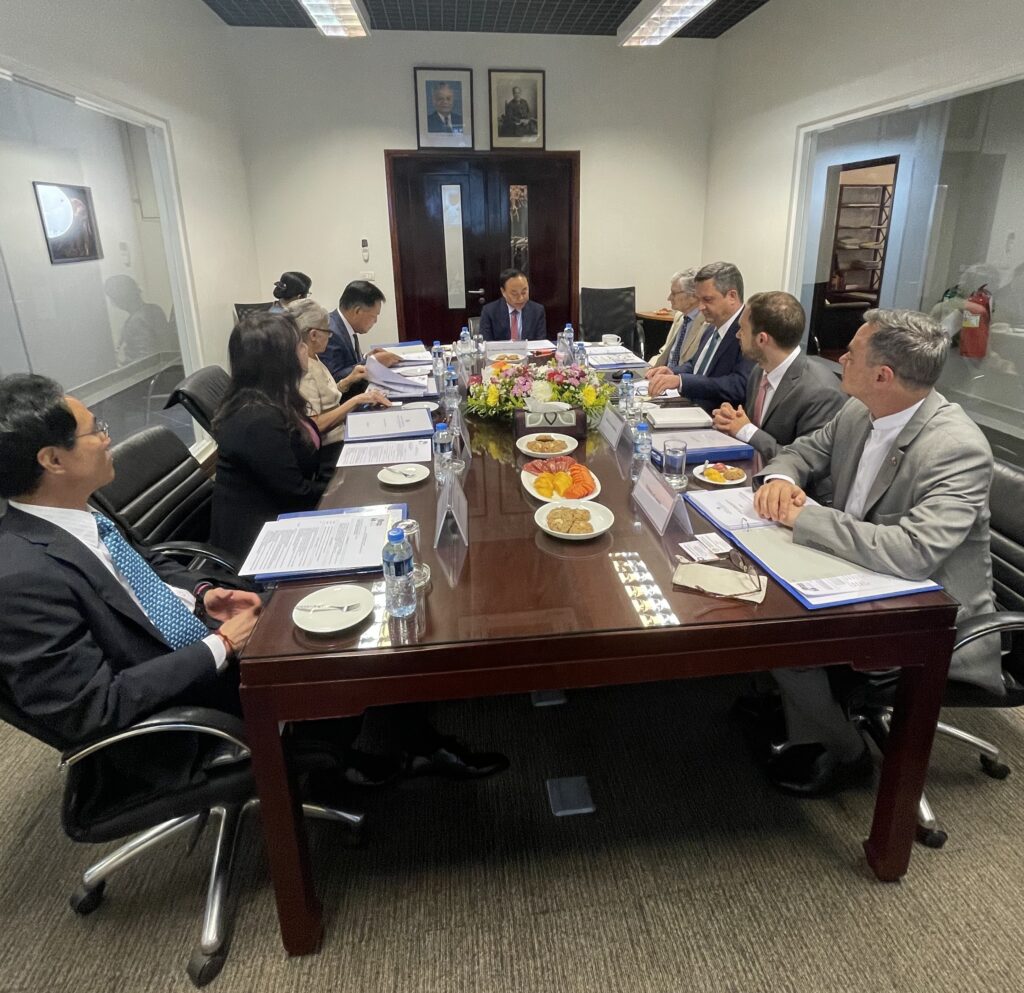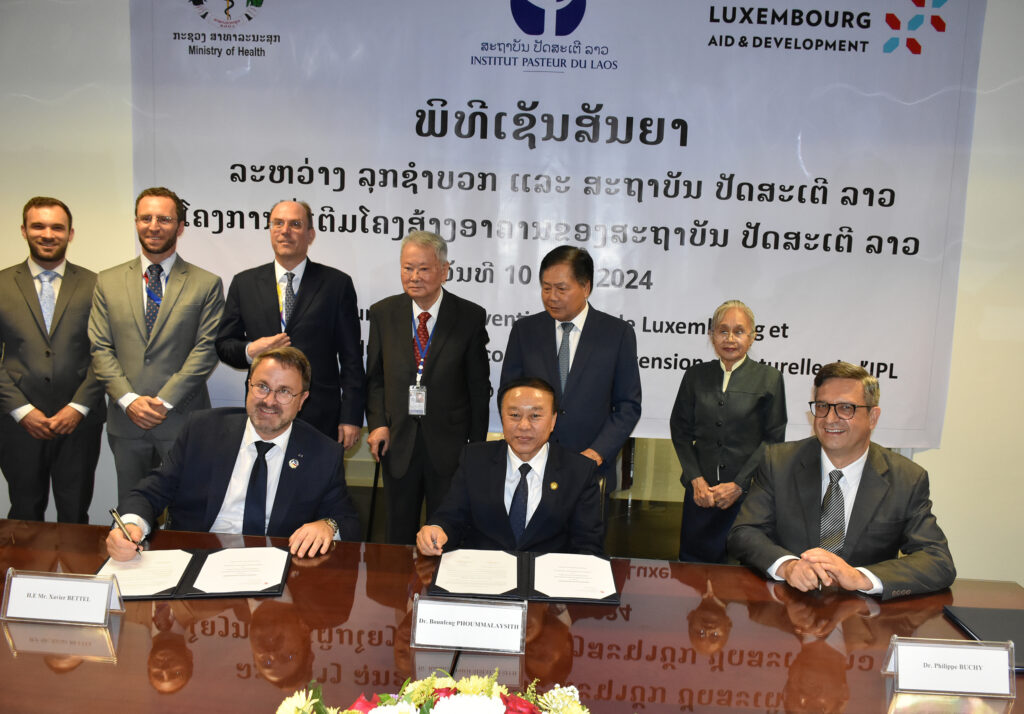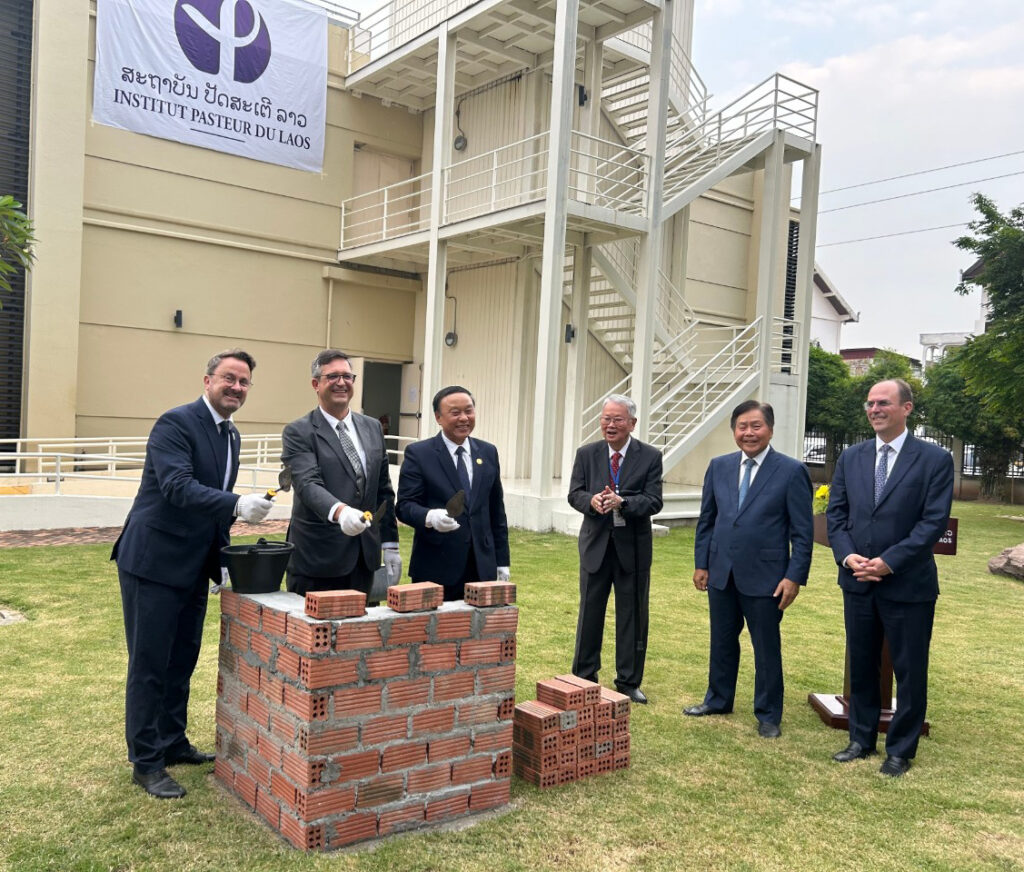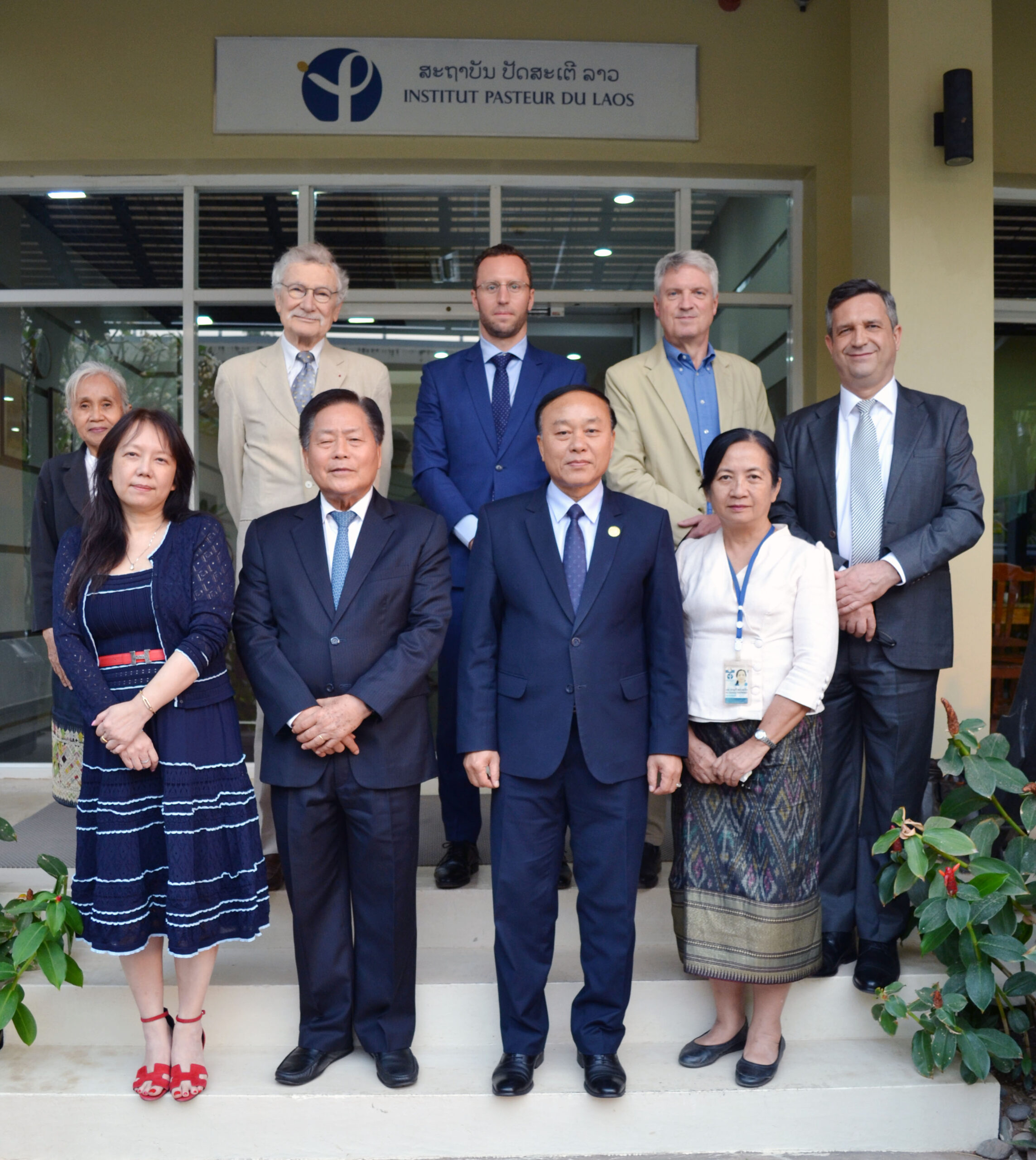Letter from Dr. Philippe BUCHY, General Director
 In 2024, the number of suspect dengue cases reported to the Ministry of Health slightly decreased compared to 2023. The arbovirus surveillance program established that the dengue virus serotype 2 is now clearly the predominant circulating serotype in the country, confirming the previous years’ trend. To investigate the etiology of dengue-like infections, new molecular assays targeting flaviviruses, alphaviruses, phleboviruses, and several intracellular bacteria (such as Orientia tsutsugamushi) were developed and used to test hundreds of clinical specimens.
In 2024, the number of suspect dengue cases reported to the Ministry of Health slightly decreased compared to 2023. The arbovirus surveillance program established that the dengue virus serotype 2 is now clearly the predominant circulating serotype in the country, confirming the previous years’ trend. To investigate the etiology of dengue-like infections, new molecular assays targeting flaviviruses, alphaviruses, phleboviruses, and several intracellular bacteria (such as Orientia tsutsugamushi) were developed and used to test hundreds of clinical specimens.
In close collaboration with the National Center for Laboratory and Epidemiology (NCLE) of Laos, with the precious support of the World Health Organization, Institut Pasteur du Laos (IPL) pursued the genomic monitoring of SARS-CoV-2 variants in the country and shared those data with relevant national and international organizations.
Following the emergence of the clade Ib of monkeypox virus in Africa that was declared a public health emergency of international concern, IPL quickly implemented new diagnostic and sequencing capacities for monkeypox virus detection and characterization.
After the detection of several H5N1 virus infection cases in neighboring countries (Vietnam and Cambodia), IPL decided to accelerate and expand the development of its avian influenza program that initially supported the timely genomic analysis of avian influenza viruses detected by the National Animal Health Laboratory (NAHL, Ministry of Agriculture and Forestry) and now also includes a live bird market surveillance program in 2 cities of Laos that generates regular data on the circulation and the risks associated with H5N1, H9N2 and other avian influenza viruses in the country.
With the scientific support of the National Microbiology Laboratory (NML) in Canada and within the framework of a convention with Global Affairs Canada (GAC), IPL was able to create a biosafety office and reinforce the training of its biosafety officer. The project includes also the building of sustainable local capacities in Lao PDR against emerging viral pathogens with pandemic potential and supports the discovery of new pathogens with epidemic potential in wild animals. In partnerships with local entities in both the animal and environmental sectors, including the Faculty of Environmental Sciences (FES) at the National University of Laos and NAHL, the virology laboratory team collected already close to 6,000 animal specimens that were tested for the detection of several virus families of interest. The molecular characterization of the viruses already detected is currently ongoing.
This project is nicely complemented by the PIMES program, supported by the French Ministry of Foreign Affairs and Europe, which aims to develop cutting-edge, high-performance molecular diagnostic tools to detect these new viruses in humans and animals of Lao PDR. These tools can theoretically be generated and validated within weeks if the sequence is known, contributing to a rapid response against an emerging outbreak. These tools will also be used to estimate the prevalence of these pathogens in the general population and strengthen surveillance efforts in Laos.
The ectoparasites and associated pathogen studies employing next-generation sequencing technology on >4,000 ticks collected throughout the country uncovered the existence of 12 species of ectoparasites across five genera, as well as 62 families of viruses. Similar studies were conducted on mosquitoes and sandflies to better characterize the rich biodiversity of these insects in Laos. Several species of arboviruses and phleboviruses were detected for the first time in the country in those insect vectors.
The Lao-Lux laboratory working on vaccine-preventable diseases mainly focused on the research programs on hepatitis B prevalence in blood donors, etiology of acute hepatitis, maternal and neonatal markers of vaccine protection, and reasons for hospitalization in young children. All the data generated will be used to guide new public health policies for Lao PDR.
The Parasitology Laboratory implemented the SATREPS project which is financially supported by the Japan International Cooperation Agency (JICA) and the Japan Agency for Medical Research and Development (AMED). The objectives of this project are to accelerate malaria elimination, schistosomiasis elimination, and opisthorchiasis control.
During the year 2024, thanks to the support of the French government through Expertise France, IPL was fortunate to welcome Dr Gary Wong who took the position as Head of the virology laboratory in July 2024. Prof. Blandine Rammaert, an infectious disease Specialist and Expert in clinical research also joined our Institute in August 2024.
Thanks to the generosity of the government of the Grand- Duché de Luxembourg, IPL has recently initiated a project of structural capacity reinforcement that includes the construction of new laboratories, office space and a training center.
With 600 sqm of extension of the research building, the initiation of several new research projects and the recruitment of senior researchers, IPL looks at the future with a lot of optimism…

